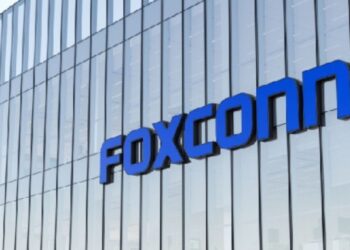Introduction
The maritime industry is navigating towards a greener future, and ammonia is emerging as a promising sustainable fuel alternative. Recently, HD Hyundai and Capital Gas’s innovative ammonia carrier design, incorporating Amogy’s cutting-edge technology, received a significant endorsement from the American Bureau of Shipping (ABS) and the Liberian Registry. This approval marks a pivotal step forward in the quest for sustainable marine fuels and sets the stage for a new era in shipping.
HD Hyundai and Capital Gas: Industry Leaders
HD Hyundai, a global powerhouse in shipbuilding and maritime engineering, has consistently been at the forefront of technological innovation. Partnering with Capital Gas, a renowned player in the gas shipping sector, this collaboration brings together two giants with a shared vision for sustainable shipping. Their combined expertise and resources have culminated in the development of a groundbreaking ammonia carrier design.
Ammonia as a Marine Fuel
Ammonia is gaining traction as a viable marine fuel due to its zero-carbon emission potential when produced from renewable sources. Unlike traditional fossil fuels, ammonia combustion does not produce carbon dioxide, making it an attractive option for reducing the shipping industry’s carbon footprint. However, the use of ammonia as a marine fuel presents challenges, including storage, handling, and safety concerns, which necessitate innovative solutions.
Amogy’s Cutting-Edge Technology
Amogy, a pioneer in sustainable energy solutions, has developed advanced technology to harness the power of ammonia for marine applications. Their system efficiently converts ammonia into electricity, providing a clean and reliable energy source for ships. Amogy’s technology integrates seamlessly into the ammonia carrier design, ensuring optimal performance and safety.
The Design of the Ammonia Carrier
The newly approved ammonia carrier design boasts several key features that set it apart from conventional vessels. The design prioritizes safety with advanced containment systems to handle ammonia’s unique properties. Environmental considerations are central to the design, with emissions control technologies that minimize any potential environmental impact. Innovations such as improved fuel efficiency and enhanced cargo capacity further enhance the carrier’s appeal.
Approval Process by ABS and the Liberian Registry
The American Bureau of Shipping (ABS) and the Liberian Registry are two of the most respected organizations in maritime safety and regulation. Their rigorous approval process involves thorough evaluations to ensure that new vessel designs meet the highest standards of safety, performance, and environmental sustainability. The endorsement from ABS and the Liberian Registry is a testament to the robustness and feasibility of HD Hyundai and Capital Gas’s ammonia carrier design.
Impact on the Shipping Industry
The approval of this ammonia carrier design is poised to have a profound impact on the shipping industry. It paves the way for broader adoption of ammonia as a marine fuel, encouraging other shipbuilders and operators to explore this sustainable option. As ammonia-fueled vessels become more prevalent, the industry can expect a significant reduction in greenhouse gas emissions, aligning with global sustainability goals.
Environmental Benefits
The environmental benefits of using ammonia as a marine fuel are substantial. Ammonia combustion produces no carbon dioxide, and when produced from renewable sources, it can achieve a net-zero carbon footprint. This contributes to the reduction of greenhouse gas emissions, helping combat climate change. Compared to other alternative fuels like liquefied natural gas (LNG) or hydrogen, ammonia offers a more practical and scalable solution for the maritime industry.
Economic Implications
Economically, ammonia presents a cost-effective alternative to traditional marine fuels. Its production and distribution infrastructure are already well-established, which can lower operational costs for shipping companies. Additionally, the use of ammonia can lead to financial incentives, such as carbon credits, further enhancing its economic viability. In the long term, widespread adoption of ammonia as a marine fuel could lead to significant savings and a more sustainable industry.
Global Regulatory Landscape
International regulations are increasingly focusing on reducing the environmental impact of the shipping industry. The International Maritime Organization (IMO) has set ambitious targets for reducing greenhouse gas emissions from ships. The approval of the ammonia carrier design aligns with these regulations, demonstrating compliance with future environmental standards. This proactive approach positions HD Hyundai and Capital Gas as leaders in sustainable shipping.
Case Studies of Sustainable Shipping Projects
Several sustainable shipping projects worldwide provide valuable insights into the potential and challenges of adopting alternative fuels. For instance, the successful deployment of LNG-fueled vessels has shown the feasibility of transitioning to cleaner fuels. These case studies highlight the importance of innovation, collaboration, and regulatory support in driving the industry’s sustainability agenda. The lessons learned can be applied to the rollout of ammonia-fueled ships.
Stakeholder Reactions
The response from stakeholders has been overwhelmingly positive. Industry experts commend the approval as a milestone achievement that could revolutionize marine fuel technology. Environmental organizations see it as a significant step towards achieving global sustainability goals. The global shipping community is keenly observing the project’s progress, recognizing its potential to set new standards in the industry.
Future Prospects
The future prospects for ammonia-fueled vessels are promising. As technology advances and more ammonia carriers are built, the maritime industry will move closer to a sustainable future. Innovations in ammonia production, storage, and handling will further enhance its viability as a marine fuel. Over the next decade, we can expect to see a growing fleet of ammonia-powered ships navigating global waters, reducing the industry’s environmental impact.
Challenges and Considerations
Despite its potential, the adoption of ammonia as a marine fuel comes with challenges. Technical issues related to ammonia’s corrosiveness and toxicity need to be addressed through robust engineering solutions. Safety concerns, including the risk of leaks and exposure, require stringent safety protocols and training. Moreover, widespread adoption will depend on the development of infrastructure for ammonia production and distribution.
What is the significance of the ABS and Liberian Registry approval?
The approval signifies that the ammonia carrier design meets the highest standards of safety, performance, and environmental sustainability, paving the way for its adoption in the shipping industry.
How does ammonia compare to other marine fuels?
Ammonia offers a zero-carbon emission alternative when produced from renewable sources, making it more environmentally friendly compared to traditional fossil fuels and even some other alternative fuels like LNG.
What are the environmental benefits of using ammonia as a fuel?
Ammonia combustion produces no carbon dioxide, contributing to significant reductions in greenhouse gas emissions and helping to combat climate change.
What challenges does the industry face in adopting ammonia?
Challenges include technical issues related to ammonia’s corrosiveness and toxicity, safety concerns, and the need for infrastructure development for its production and distribution.
What is the future outlook for ammonia-fueled vessels?
The future looks promising, with advancements in technology and infrastructure expected to facilitate the broader adoption of ammonia as a marine fuel, leading to a more sustainable shipping industry.







